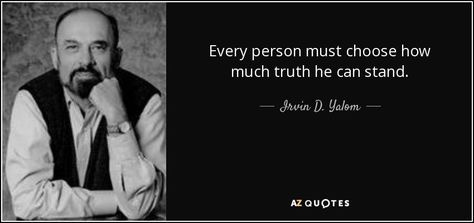“The gift of therapy is a unique one—the gift of encountering another at the deepest level with the promise of full acceptance and understanding.”-Irvin Yalom.
I write this essay as someone who has been a client or patient in psychotherapy. I was a patient for personal reasons. In addition, my training as a therapist required that I be patient in the therapeutic process. Finally, I have over forty years of experience in mental health and psychotherapy.
Psychotherapy involves a close relationship between therapist and client. Positive outcomes depend on the therapist's being warm, genuine, and empathic.
Warmth is comforting. A therapist's warmth is clear in their speech, facial expressions, and body language. When a therapist shows warmth, the client feels welcomed and accepted without judgment. Many people enter therapy feeling misunderstood or lonely. A kind and accepting presence helps reduce fears. It builds a secure space for open conversation.
The therapist being genuine means being real instead of acting in a role. Clients can tell if someone is being insincere or following a script. When genuine therapists bring their true selves into the room, sharing reactions, responding, and showing their humanity. This authenticity nurtures trust and makes the therapeutic relationship feel genuine rather than mechanical.
Empathy is central to this process. Empathy means the therapist understands what the client is feeling. An empathetic therapist doesn't just know the client is sad. A good therapist can feel some of that sadness. This mutual understanding helps the client realize they are not alone, which can be validating. When a therapist demonstrates empathy, the client feels recognized and understood, easing their pain and encouraging them to be more open.
Warmth, genuineness, and empathy form a safe relationship. For some clients, therapy may be their first trusting relationship. In this dynamic, clients can face their feelings, navigate challenges, and heal. Although therapeutic methods and theories are significant, they only function when this relationship foundation exists. These qualities foster a bond that reaches clients in ways mere words or techniques can't, making it a genuine therapeutic relationship.
In my experience, many clients stated that they felt they mattered to me. When clients perceive that they are valued, it gives them a sense of worth that can be life-changing for those who may have felt invisible or unimportant for years.
Being authentic with clients means meeting them where they are in the present. Therapists engage in the "here and now" every hour they spend together. This method helps the therapist and client connect over current issues rather than getting stuck in historical problems. While the past influences us, revisiting it can sometimes distract from the present. When therapists focus on the here and now with their clients, it allows for new insights and growth.
Focusing on the present also allows the therapist and client to deal with emotional reactions during sessions. Therapist honesty can lead to significant insights for the client. When the therapist inquires, "What are you feeling right now?" it redirects the client's attention to their current experience. It encourages open discussion about emotions, fostering a therapeutic connection where they can examine feelings without retreating to the past or guessing about the future.
Among many essential qualities, empathy is key to effective therapy. When a therapist understands a client's feelings, it allows the client to feel seen and understood. The therapist has the profound ability to enter the client's experience.
For clients who feel alone in their challenges, receiving empathy from a therapist is life-changing. Many people enter therapy with the burden of being misunderstood or ignored. When a therapist engages them with true empathy, it may be the first time they feel someone understands their struggles.
Empathy encourages a relationship where genuine healing can occur. In this space, clients feel their experiences are honored, their struggles acknowledged, and their worth appreciated. In that environment, they can begin the path toward self-acceptance, growth, and resilience.







Beth, when I was a teen and in desparate need of mental help support my family also thought it was a shameful thing. It was only when I was on my own that I found a warm and empathetic therapist. My family's reaction? Good, you're crazy. I remember that to this day and I'm 82
Hi Allan, thanka for the piece. Unfortunately some therapists, especially beginners obsess around techniques and disregard the therapeutic relationships, which is based on the elements you have mentioned. The relationship, the present, the dynamics, and essential elements first; the strategies, techniques or whatever we calll them, should be integrated when necessary. This is what I encounter the most when I supervise therapists. Thanks for the reminder!